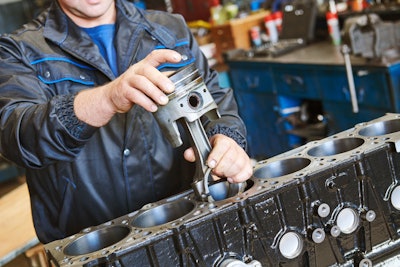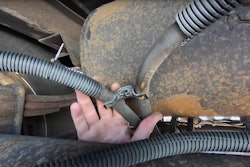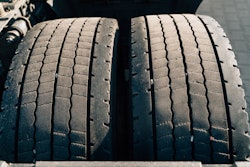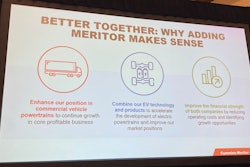
It’s very hard to put a wrench on an electron. Spend a few minutes web searching the term “embracing change” and you can find an endless list of platitudes from famous people to put on wall art in your office to remind you that nothing stays the same — as if you didn’t know that already. Change is hard. Change can make your business and your skills redundant or obsolete.
In 2021, I had the fortune of mentoring a mid-20s son of a neighbor about a major career change to become a diesel mechanic. He had enrolled at one of the many excellent diesel technical schools in the Dallas/Fort Worth region and was about to start classes. He had an agricultural background and had been keeping farm vehicles working. His energy, optimism and commitment were refreshing.
In talking to him, you could tell he really liked the mechanical side of trucks. The challenge for him was going to be embracing the software and electronics that are increasingly supplanting mechanical systems on trucks. He really had no interest yet in the future battery electric or hydrogen fuel cell technologies. Realistically, he didn’t need to worry about those yet as there are millions of diesels on the road today and they will be around for years to come. He can get his feet in the door at a fleet or OEM dealership and then route his career forward as the technology matures. In 2021, I felt he had time to deal with the inevitable technology changes I know he will encounter.
The trucking industry has been changing since horse drawn wagons started being replaced by the first Mack Brothers motorized vehicles in Manhattan in 1904. All along the way, jobs continually changed. When I started at an OEM, it was very common that mechanical engineers were employed and often managing the electrical groups. I was one of those for a significant new truck model, but had the fortune to have excellent electrical engineering assets available to me at our technical center and supporting suppliers.
Before the introduction of electronic control modules (ECMs) and software-controlled engines that became mandatory in the mid-1990s, diesel trucks were largely analog in nature. The role of the electrical groups in those days was largely focused on developing electrical harnesses, making sure they were routed in robust ways on the vehicle, and dealing with never ending electrical connector reliability challenges in the field. The digital world has dramatically changed the skill sets needed to design, build and maintain today’s trucks.
The most important tool in the shop now is most likely the laptop computer. Yes, you still need wrenches, but knowing what is going wrong, deciphering the symptoms and finding the root cause of issues largely starts with plugging the laptop into the data port.
The complexity of the software has been growing at exponential rates as more computers are added to the vehicles each year. The looming world of battery electric, hydrogen fuel cell and autonomous vehicles promises even more. I interviewed a Volvo executive working in Sweden for my first NACFE report on battery electric vehicles in 2018 and he pointed out that their EV engineering lab had wood floors and the “mechanics” wore white lab coats.
The nature of maintenance and repair is migrating from “fix it” to “replace it,” as trucks become more plug-and-play collections of digital systems. I recall our engineering groups spending months designing truck models in the 1990s to make sure the valve cover could be removed and the engine serviced without removing the cab. There is a remarkable amount of design space tradeoffs around the cab firewall and what is called the doghouse, that piece that covers the intrusion of the engine into the cab space.
The evolving zero emission new trucks will be much more like a collection of electronic components in a personal computer than like a mechanical system in an engine. Diagnostics will highlight that either a software update is needed, or a component needs to be replaced. The term mechanic will be replaced with technician. Servicing will be plug and play, with the faulty components shipped off to be repaired or responsibly scrapped along with old computers, monitors, cell phones and televisions.
Fleets will be offered the opportunity for factory refurbished or new components in repair centers. The electronic components will have high prices and everyone will be looking for ways to mitigate costs. Right to repair laws may help diversify the sources of these costly components, but someone will have to carry inventory to facilitate uptime for fleets. Those parts warehouses will need to have efficient supply chains. The recent experience with the international computer chip shortages that hamstrung OEM production lines also hampered repairs of trucks in the field. Fleets, dealers and OEMs were scavenging parts off of parked trucks to keep others moving.
Embracing change defines the freight industries’ typical Monday. It always has. The ramifications of that change can lead to companies and skills becoming obsolete. It’s the harsh reality of the business. The worst thing that can be done is to be in denial about new technologies. In 2019, I interviewed for SAE a senior engineer developing future adaptive cruise control systems. There were aspects of the systems that would be impacted by battery electric trucks. The engineer stated that he did not believe in electric trucks. I hope, for his sake, he has revised that position.
I expect my neighbor’s son will have an excellent career maintaining freight trucks. I also expect that over the course of a 30- or 40-year career, that his job title will change from “diesel mechanic” to “freight technician” or, my personal favorite, “trucksmith.” There will still be wrenches in the shop when he retires, but the job then will largely be on a computer.












